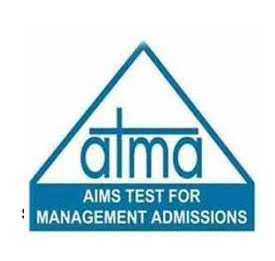PhD Biochemistry is a research-oriented Doctorate course that can be pursued after MSc Biochemistry, Microbiology, or another equivalent branch. The course deals with research and development in areas like biochemical processes in living organisms, the effect of chemicals on various body organs, genetic, cellular metabolism, etc.
A PhD in Biochemistry is the first step to dive into research or an academic career. It generally takes 3 to 5 years to complete, depending on the type of research, the learning ability of the candidate, and the research facility at the institute. PhD Biochemistry admission requires qualifying entrance exams such as GATE, UGC-NET, CSIR-UGC-NET, DBT, ICMR, etc. The average salary offered to a PhD Biochemistry graduate is INR 4 to 10 LPA, which further increases with enriched experience.
- PhD in Biochemistry Course Highlights
- What is PhD in Biochemistry?
- Why pursue a PhD in Biochemistry?
- Who Should Pursue PhD in Biochemistry?
- PhD in Biochemistry Eligibility Criteria
- PhD in Biochemistry Entrance Exams
- PhD in Biochemistry Admission Process
- PhD in Biochemistry Top Colleges in India
- PhD in Biochemistry Syllabus
- PhD in Biochemistry Fellowships in India
- Career Options after a PhD in Biochemistry
- PhD in Biochemistry Vs PhD in Biotechnology
- PhD in Biochemistry FAQs
PhD in Biochemistry Course Highlights
A PhD in Biochemistry helps develop research skills through extensive experimentation with biological samples. The complete details of the course is given below:
What is PhD in Biochemistry?
A PhD in Biochemistry is a doctoral research degree that deals with the study of chemical processes and molecular mechanisms of living organisms.
- It places a focus on both advanced coursework and intensive laboratory research that includes: protein structure and function, molecular biology, genetics, bioinformatics, and biochemistry of different organisms.
- The candidates do original research that adds new knowledge or sees new insights in the area and ends in a dissertation.
- The course is normally a 3-5 year research program that requires solid expertise in biochemistry or a comparable major.
- Students take up jobs in teaching, research institutes, academia, pharmaceuticals, biotechnology, and healthcare, as well as the health sector.
Why pursue a PhD in Biochemistry?
Pursuing a Biochemistry PhD improves problem-solving, decision-making, and observational skills. It offers a promising career in Drug manufacturing industries, universities, and research centers. One can obtain government fellowships amounting up to INR 60,000.
- Creating New Knowledge: As a PhD student, one works on novel research problems for human/animal/environment welfare. This contributes to the existing knowledge in these fields. It helps further the development of the field and benefits society.
- Professional Development: The rigorous training and research experience gained during a PhD program fosters professional growth and development.
- Analytical and Critical Thinking: A PhD program emphasizes the development of analytical and critical thinking skills that prepare the learner for industrial and research careers.
Who Should Pursue PhD in Biochemistry?
A Biochemistry PhD is best suited to students who have a major interest in scientific research, molecular and cell biology, and the study of Microbiology and Biochemistry at a fundamental level.
- It is appropriate for people who wish to become autonomous researchers, teachers of colleges, biotechnologists, or scientists in the pharmaceutical and healthcare sector.
- The candidates who have done their graduation or Post-graduation, such as MSc Biotechnology, MSc Biochemistry, etc., can opt for this course.
- This higher degree will be of benefit to candidates interested in the study of cellular mechanisms, disease pathways, drug development, and novelty in biotechnology.
- It would also cater to people devoted to the long-run research careers with well-developed abilities of analysis, experimentation, and critical thinking. Management opportunities in science, teaching, industry, and professional modules also become available to the program.
PhD in Biochemistry Eligibility Criteria
To get registered in Biochemistry PhD, one needs to qualify the minimum eligbility requirements in general and also of the college, which are given below:
- Students who completed MSc Biology, Biochemistry, Biotechnology, or other biological streams are eligible for a PhD in Biochemistry.
- Candidates with an MPhil in Microbiology or related degree can also apply. However, it is not mandatory to have such a degree for a PhD.
PhD in Biochemistry Entrance Exams
Here is the list of entrance exams that the candidates need to appear for to opt for the Biochemistry PhD course.
PhD in Biochemistry Admission Process
PhD Biochemistry admission is based on the cut-off marks scored in the entrance exam. The PhD Biochemistry admission process at BHU is given below.
Step 1: The candidates need to appear for the UGC NET/ CSIR NET exam in order to begin the admission process at BHU.
Step 2: Applicants should fill out the form via the BHU admission portal, submitting their NET score and other such documents.
Step 3: Following the online application, successfully selected candidates will have to attend a viva voice (oral interview) and provide a full proposal on their research idea.
Step 4: The final selection is done based on the candidate's score on the NET and on viva voice.
Step 5: The merit list will be published, and selected candidates will be called for the document verification process.
Step 6: The candidates need to visit the campus for the document verification, and once done, they have to pay the course fee to confirm their admission.
Post selection, candidates will be asked to choose the research supervisor based on their area, vacancy, funding, and research facilities.
PhD in Biochemistry Top Colleges in India
There are several colleges, research centers, diagnostic centers, and universities that offer PhD Biochemistry courses. Some of the best institutes are tabulated below.
PhD in Biochemistry Syllabus
PhD Biochemistry is a research-based degree programme focused on experimental working model and thesis writing.
PhD in Biochemistry Fellowships in India
PhD Biochemistry students can obtain fellowships by applying to various categories such as;
- Single Girl Child Fellowship
- Lady Tata Memorial
- ICMR JRF
- SHODH
- DST JRF
- PMFDR
- CSIR NET/JRF
- University-level fellowship
The amount of fellowship varies among these various schemes. It generally ranges between INR 15,000 to 70,000 per month. Some government funding agencies also provide fellowships to the project fellows working on funded projects. For instance, GSBTM, DST-SERB, ICMR, CSIR, etc.
Career Options after a PhD in Biochemistry
A person with a PhD in biochemistry can either work in the research industry or academia. Also, there is a great opportunity to work with diagnostic research centres as well as Disease research centers.
PhD in Biochemistry Vs PhD in Biotechnology
PhD Biochemistry is oriented to know more on molecular chemistry of the living organisms, and therefore, it would be appropriate in the fields relating to research and academia. PhD Biotechnology deals with applying the knowledge of biology through innovation with the use of technology to produce tangible products and solutions.
PhD in Biochemistry FAQs
Is it compulsory to publish research papers for a PhD in Biochemistry admission?
No, it is not a compulsory eligibility criterion. However, those having some good publications get first preference during the selection process.
Can I work in the forensic department after a PhD in Biochemistry?
Yes, in a forensic laboratory, some investigations are conducted using principles of biochemistry. Therefore, an expert in the biochemistry domain is required during criminal investigations.
How can I apply for a government fellowship?
One has to submit an application, a research proposal, and attend an exam and an interview as the selection process. Upon selection, an individual gets the fellowship every month.
Is it worth doing a PhD in Biochemistry?
PhD in Biochemistry is a good option to those who are interested in scientific research, innovations, and in-depth research at the molecular level on living organisms. The career which is attained by the degree has high-level positions in academic institutions, pharmaceuticals, biotechnology, health care, and government research centers. Not only does it equip the individual with specialized knowledge, but also with critical thinking, problem-solving and technical skills that are much treasured in science and industry.
What is the scope of PhD in Biochemistry?
A Ph.D. in biochemistry has a broad scope in the life sciences and biotechnology. The graduates work in the research laboratories, pharmaceutical and health industries, biotechnology companies, and colleges. They venture in drug development, genetic research, clinical research, environmental science as well as agricultural advancement. Careers expected out of the degree include research scientists, lecturers, clinical biochemists, pharmacologists and biotechnologies.
Do biochemists need a PhD?
A PhD is not always required by all biochemists, but having one can greatly increase career prospects, particularly in those job opportunities that are more research- and academic-oriented. The entry-level position in laboratories, quality control and pharmaceutical manufacturing may accept a bachelor or a master degree. To do independent research, however, or hold other management work or to teach in universities, a PhD may frequently be necessary.
Do I need to qualify for he national entrance exam to get admission to a PhD?
No, it is not compulsory to qualify for the national entrance exam for PhD Biochemistry admission, as most universities conduct their entrance test. However, nationally qualified candidates are exempt from this and can apply directly to any institute. Students are advised to check the admission guidelines of the institute of choice.











